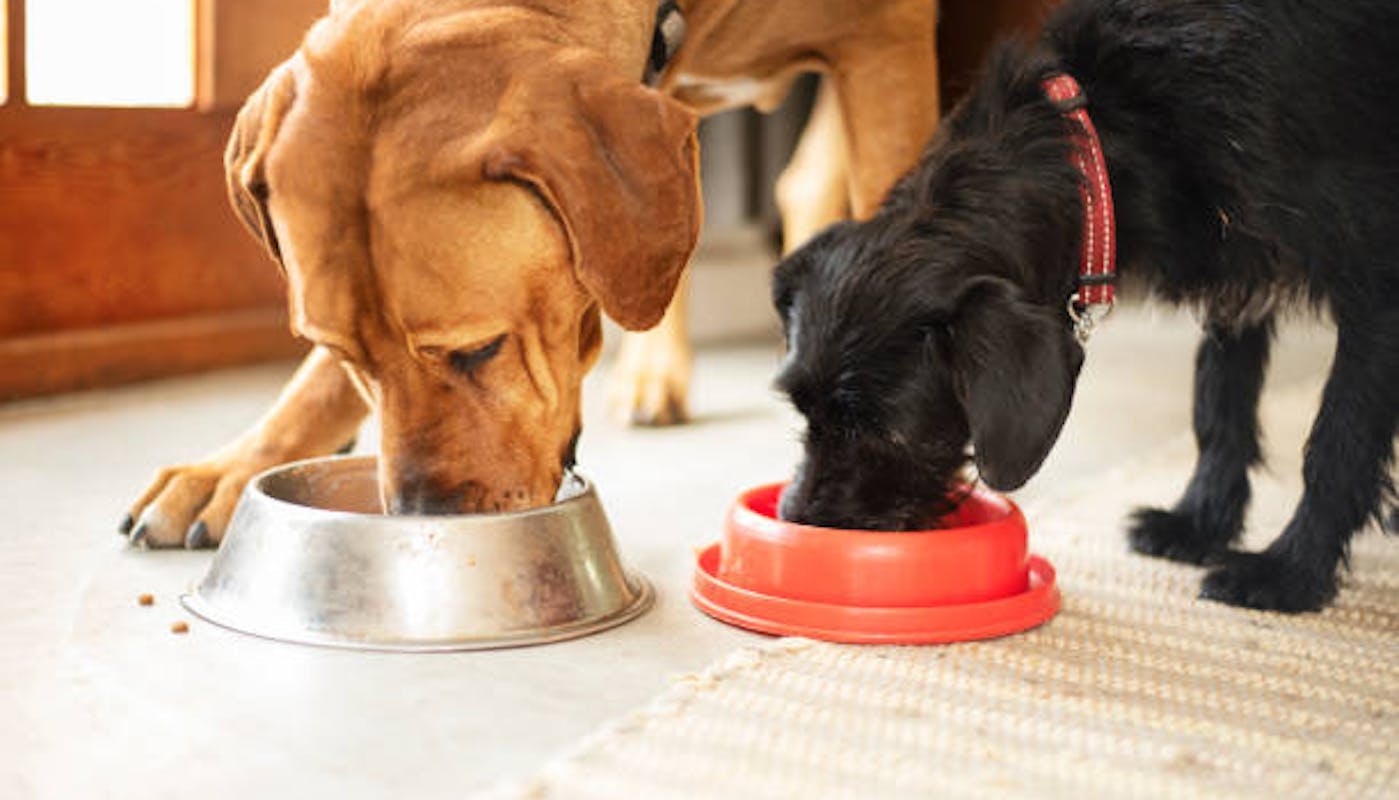Can Dogs Eat Sauerkraut?
Can Dogs Eat Sauerkraut?
Whether your dog has got in the pantry and helped themselves to your snacks, or you’ve heard about the benefits of fermented foods and are wondering if dogs can have sauerkraut, the answer is yes… But only in certain circumstances.
In this blog we will look at the health benefits of sauerkraut, how to feed sauerkraut to dogs, and when it should be avoided.
What Is Sauerkraut?
Raw cabbage fermented in lactic acid is most commonly known by its German name, sauerkraut. Fermenting the sugars in the cabbage makes it soft and pickled, with a sour yet slightly sweet taste that you’ll either love or hate.
But whatever you think of the flavor, one thing isn’t up for debate: it’s health benefits. Sauerkraut is so rich in nutrients, it’s even been said to prevent scurvy.
What Are The Benefits Of Sauerkraut For Dogs?
Sauerkraut is rich in a number of essential vitamins and minerals that your dog needs to stay healthy.
- Vitamin A - enhanced eye, skin, and fur health and tissue growth
- Vitamin C - boosts the immune system and supports red blood cell generation
- Vitamin K - improves brain function
- Calcium - keeps bones and teeth strong
- Fiber - keeps digestive functions healthy
- Iron - boosts energy, supports healthy blood cell production and circulation, and regulates the metabolism
- Probiotics - the probiotic from lactic acid, lactobacillus, promotes healthy gut flora, increases ability to absorb nutrients, and can help digestive diseases. Probiotics also lower cholesterol and aid fat absorption which improves cardiovascular health.
- Antioxidants - reduce joint pain, improve symptoms of allergies, and boost overall wellbeing
- Potassium - supports kidney function
When Is Sauerkraut Bad For Dogs?
Sauerkraut is often high in sodium which should only be fed to dogs in moderation. Dogs with heart or kidney issues should limit the amount of salt in their diet so sauerkraut might not be a healthy addition for them.
Fermented foods can also cause bad gas – this is technically a healthy side effect of the ‘good bacteria’ that is promoted in the gut. However, you might decide that the symptoms outweigh the positive effects. Gradual introduction to fermented foods is best so they can get used to the probiotics. It can cause an upset stomach so, if this continues, stop feeding it to them and consult your vet.
Store-bought sauerkraut can also contain ingredients that are toxic to dogs. Garlic, onion, carraway and fennel seeds, and sugar can sometimes be included for extra flavor. These are all toxic to dogs and cause diarrhea, vomiting, weight gain, and heart problems. So be sure to only feed your dog home-made or pure cabbage sauerkraut.
How To Feed Sauerkraut To Dogs
Raw, unpasteurized sauerkraut that is made purely from cabbage and lactic acid can be a healthy addition to your dog’s diet – though it shouldn’t be a main component. A small amount on a fairly regular basis can be good for their gut health, however most of these benefits can be found in traditional dog foods.
A safe, homemade batch of sauerkraut is the best way to ensure that it doesn’t contain any hidden nasties or toxic ingredients. Soak it in water to reduce the acidity, stir it into their dinner, or chop it up and feed it to them in small spoonfuls if they don’t mind the taste.
Front of the Pack’s The One supplement is made with 12 clinically-proven ingredients that can improve their overall health, including gut and digestive health, joint support, sleeker coat, and increased energy. It’s rich in probiotics that support good bacteria and gastrointestinal health. And all you have to do is mix it into their dinner each day. You’ll see the positive effects within weeks.
